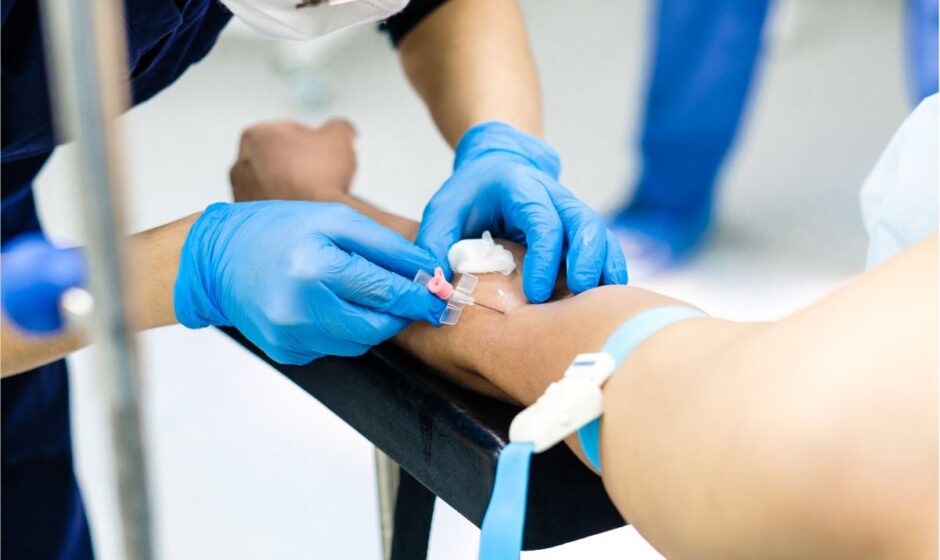In recent years, IV drip therapy has surged in popularity, promising quick hydration and a boost of essential nutrients directly into the bloodstream. From celebrities to wellness enthusiasts, many swear by its benefits. But what exactly is IV drip therapy? Does it live up to the hype? And is it safe? In this comprehensive guide, we’ll delve into the science behind IV Drip in Dubai, its potential benefits and risks, and provide answers to frequently asked questions.
What is IV Drip Therapy?
IV drip therapy involves administering fluids, vitamins, and minerals directly into a person’s bloodstream via an intravenous (IV) line. This method bypasses the digestive system, allowing for faster absorption and immediate effects. The therapy typically includes a mixture of saline, vitamins, and minerals (such as magnesium and calcium), but formulations can vary based on individual needs.
Process of IV Drip Therapy
- Consultation: Before treatment, a healthcare professional will evaluate the individual’s health history and determine appropriate nutrient levels.
- Preparation: A sterile IV bag containing the chosen formula is prepared.
- Administration: A needle is inserted into a vein, and the solution is slowly administered over 30 to 60 minutes.
- Monitoring: Patients are monitored for any adverse reactions during the infusion.
Alleged Benefits of IV Drip Therapy
Proponents of IV therapy claim various benefits, including:
1. Enhanced Hydration
One of the most significant advantages is the ability to rapidly hydrate the body, especially after dehydration due to exercise, illness, or alcohol consumption.
2. Nutrient Boost
IV therapy can deliver high doses of vitamins and minerals that may not be achievable through oral supplements, offering potential benefits such as improved energy levels and immune function.
3. Improved Recovery
Some athletes use IV therapy to expedite recovery post-exercise, believing it can reduce muscle soreness and fatigue.
4. Hangover Relief
A popular trend is the use of drips as a remedy for hangovers, providing rapid hydration and replenishing lost nutrients.
5. Treatment for Medical Conditions
Certain medical conditions, such as migraines, chronic fatigue syndrome, and fibromyalgia, may benefit from the targeted nutrient delivery that IV therapy offers.
Science Behind IV Drip Therapy
While many people report positive experiences with IV drip therapy, the scientific evidence supporting its widespread use is limited. Most benefits stem from the infusion of hydration and specific nutrients rather than the IV method itself.
Hydration
Research supports the efficacy of IV fluids for rapid rehydration in clinical settings, particularly for patients with severe dehydration. However, for individuals who are mildly dehydrated, oral hydration is often just as effective.
Nutrient Absorption
The body absorbs nutrients differently depending on various factors, including individual health status and the presence of food in the digestive system. Some studies indicate that IV administration can provide higher blood concentrations of vitamins, but the clinical significance of this increase is still under investigation.
Is IV Drip Therapy Safe?
While IV drip therapy is generally considered safe when performed by qualified healthcare professionals, there are potential risks and side effects:
Common Side Effects
- Discomfort at the Injection Site: Bruising or swelling can occur.
- Infection: There’s a risk of infection at the insertion site if not done under sterile conditions.
- Allergic Reactions: Some individuals may experience allergic reactions to the vitamins or minerals used.
- Fluid Overload: Administering too much fluid can lead to complications, especially in those with heart or kidney problems.
Contraindications
IV drip therapy may not be suitable for everyone. Individuals with certain conditions, such as heart disease, kidney disease, or those on specific medications, should consult a healthcare provider before undergoing treatment.
FAQs
1. How often should I get IV drip therapy?
The frequency of treatment can vary based on individual needs and health conditions. Some people may benefit from weekly sessions, while others may only require it occasionally. It’s best to consult with a healthcare provider.
2. Can I get IV drip therapy for general wellness?
While some people seek IV therapy for general wellness, the benefits may be minimal for individuals who maintain a balanced diet and proper hydration. Oral supplements and hydration are often sufficient for most healthy individuals.
3. How long does an IV drip session take?
Typically, an IV drip session lasts between 30 to 60 minutes, depending on the type of infusion and the individual’s response.
4. Will my insurance cover IV drip therapy?
Coverage for IV drip therapy varies by insurance provider and specific treatment. It’s advisable to check with your insurance company regarding benefits.
5. Are there any alternatives to IV drip therapy?
Yes, alternatives include oral supplements, hydration via beverages, and nutrient-rich foods. Many individuals can achieve their health goals without the need for IV therapy.
Conclusion
IV drip therapy presents an intriguing option for hydration and nutrient replenishment, particularly in specific medical contexts. While many people report positive outcomes, the scientific evidence remains mixed, and potential risks must be considered. As with Enfield Royal Clinic In Dubai, it’s crucial to consult a qualified healthcare professional to determine if IV drip therapy is suitable for you. Remember, maintaining a balanced diet and proper hydration should always be the foundation of your health regimen.




